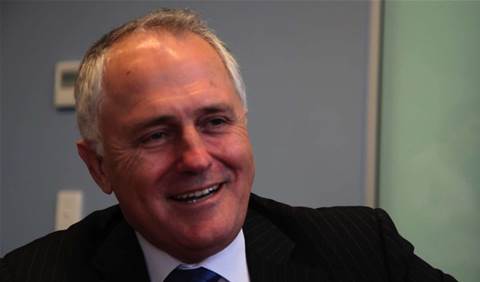Shadow Communications spokesman Malcolm Turnbull has put his support behind an international agreement on cyber espionage in the wake of revelations surrounding the NSA’s electronic data surveillance and accusations of Chinese corporate spying.
“I think what we need to have is a no bullshit, honest international discussion about cyberspace, and we have to start setting some rules and seeking to reach some agreements about the parameters of this,” he said at a community forum on electronic privacy in Paddington last night.
“At least this would mean that all this is more out in the open,” he said, adding that current conditions were unlikely to improve “unless we actually acknowledge that this activity is going on, and unless we get pass this absurdity where every country denies that it is engaged in cyber espionage while everyone is doing it”.
Domestic regulation of intelligence gathering falls short on the global stage because “everyone is a foreigner somewhere” he said.
“Countries have laws which place restrictions on what their intelligence services can do in terms of intercepting the telecommunications of their own citizens.
“But it is open slather when it comes to everyone else’s communications and indeed communications with foreigners.”
Turnbull said such an agreement is something Australia should be trying to push in international circles, and suggested that the G20 summit could be an appropriate forum for such a dialogue.
In previous months he has confirmed he raised similar concerns with officials representing the United States after US newspapers detailed the NSA’s covert surveillance of private data stored by internet companies including Google and Facebook.
At the Paddington event Turnbull also put his support behind the use of aggregated citizen data, such as health details contained in the Personally Controlled Electronic Health Record, for research purposes.
“Knowing about your medical history is really of no interest to anyone else. But if it is part of a gigantic dataset then that enables us to form judgements about the effectiveness of certain policies and correlations between treatments and diseases.
“Any medicos here I’m sure would agree that what you would learn in terms of epidemiology and other areas would be gigantic,” he said. “Why would we not make this information public at an anonymised, aggregated level?”






_(21).jpg&h=142&w=230&c=1&s=1)

_(27).jpg&h=142&w=230&c=1&s=1)




.jpg&w=100&c=1&s=0)








_(1).jpg&q=95&h=298&w=480&c=1&s=1)


